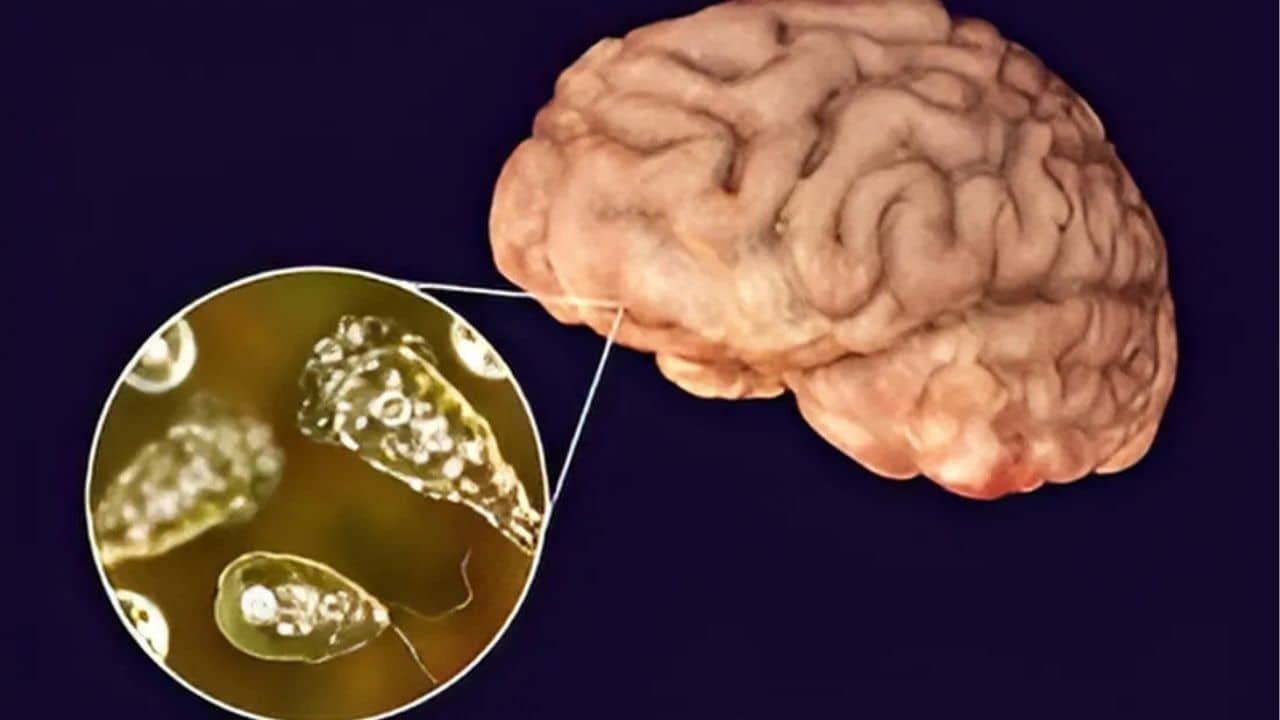Chiang Mai University warns of deadly brain-eating disease
South Korean resident dies from brain-eating amoeba after Thailand stay

The Faculty of Medicine at Chiang Mai University warns of the silent threat posed by the brain-eating amoeba found in natural water sources, urging caution even with seemingly clean water.
Yesterday, July 15, the official page of the Chiang Mai University Faculty of Medicine published an article highlighting the dangers of Naegleria fowleri, a single-celled parasite that can cause fatal infections.
Though rare in Thailand, the disease known as Primary Amoebic Meningoencephalitis (PAM) is a severe health threat that often results in death within days. Public health specialists emphasise the importance of awareness when using or coming into contact with natural water sources or even tap water in certain cases. They recommend preventive measures that everyone can adopt to avoid infection.
Naegleria fowleri, commonly known as the brain-eating amoeba, is found worldwide in soil, freshwater bodies like rivers, lakes, and hot springs, as well as in man-made water systems such as improperly maintained swimming pools or water storage tanks.
In Thailand, it has been detected in various provinces, primarily in freshwater environments, but not in seawater. Currently, there is no specific treatment available for this infection.
Despite its rarity, the brain-eating amoeba is deadly. From 1982 to 2021, Thailand recorded 17 cases, with 14 resulting in death, mostly within one to two weeks of symptom onset. This makes it a silent threat that often goes unrecognised, especially given the absence of a definitive treatment protocol.
ดูโพสต์นี้บน Instagram
Water contamination
Those at high risk include those who swim in poorly maintained natural water bodies, swimming pools, or water parks, and those who use tap water directly for nasal irrigation.
Infection occurs when contaminated water enters the nasal cavity, allowing the amoeba to travel along the olfactory nerve to the brain, causing severe meningitis.
Symptoms such as headaches, fever, nausea, and vomiting can quickly escalate to neck stiffness and neurological issues. Without immediate diagnosis and treatment, death is likely.
A notable case occurred in 2022 when a South Korean resident in Thailand for four months returned home and died from amoebic meningitis, later diagnosed as a brain-eating amoeba infection.

Tap water that meets safety standards is considered free from this amoeba. However, contamination can occur if water is stored in tanks before use, due to leaks in the plumbing system or a reduction in chlorine levels.
Crucially, direct nasal irrigation with tap water should be avoided. If necessary, water should be boiled before use, or sterile saline should be used for nasal irrigation, KhaoSod reports.
Preventive measures include avoiding the use of tap water for nasal irrigation, especially from storage tanks, and using single-use bottles of sterile saline instead. When swimming in natural or dubious water sources, wearing a nose clip is advised. If water enters the nose, it should be expelled promptly.
Health threats can stem from sources we consider safe, such as tap water or natural water bodies, even if the likelihood is low. Proactive self-protection is the best approach.
Latest Thailand News
Follow The Thaiger on Google News:


























